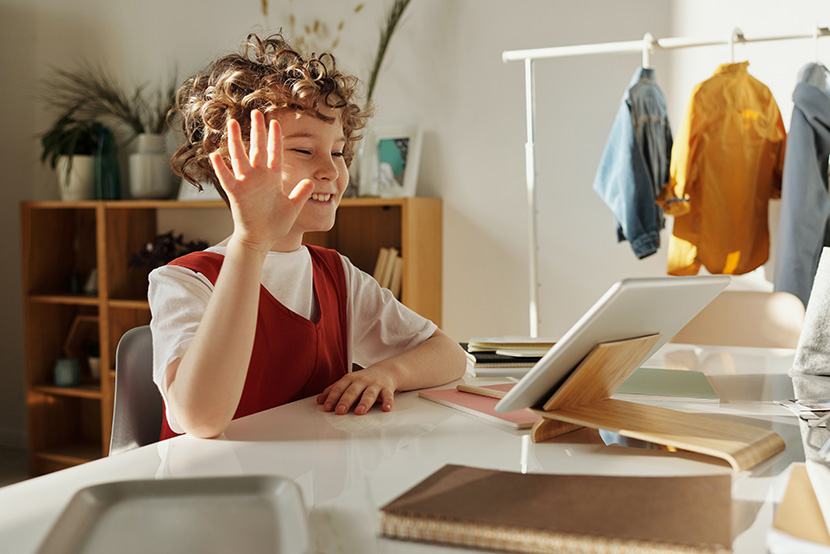Blog
Telehealth and children: everything parents need to know about virtual counselling

While telehealth has been around for some years, it’s certainly new to many of our clients during this time of social distancing. And while it can take some getting used to – for children in particular – we’ve seen some very positive results so far. So what’s different about telehealth compared to face-to-face consultations? And how can you help your child get the most out of these sessions?
Let’s start with the good news: the surprising benefits of telehealth
Aside from the most obvious benefit (that is, our psychologists can still provide support during this time), telehealth offers some surprising benefits too, particularly when it comes to children.
In a psychologist’s office, it can take some children a long time before they feel comfortable enough to talk openly. They need to get used to both the unfamiliar setting and the therapist.
But with telehealth, many children feel more comfortable in their home environment. This means:
- Children are more likely to be in their comfort zone, which can make them feel more relaxed about opening up
- We can get better visibility into their actual ‘at home’ behaviour
Telehealth has an added benefit for parents, too. It allows you to engage with us before and after the sessions – which you might not have been available to do under normal circumstances.
How telehealth videoconferencing sessions differ from face-to-face consultations
While minor, there are some variations to the therapeutic tools and strategies we use:
- Where we would have used models and handouts, we now use the ‘share screen’ function to show children these things. This allows them to see what’s on our computer in real time.
- Where we would have brainstormed ideas on a physical whiteboard or piece of paper, we use Zoom’s whiteboard tool instead.
- Depending on the child, we can accommodate shorter, more frequent sessions for telehealth. This accounts for children’s reduced attention spans in the online setting (plus the fact they’ve likely been on a screen all day for remote schooling).
Why telehealth videoconferencing is the next best thing to face-to-face sessions
Although we may need to be more creative, our psychologists still practise the same skills to engage with your child:
- We work hard to find shared or common interests to put your child at ease.
- We focus just as much on eye contact and work hard to keep your child engaged.
- We still ‘embrace the pause’ to allow your child time to speak before jumping in.
- We summarise actions and next steps at the end of every session.
How to help your child get the most out of their telehealth sessions
While telehealth has its challenges, we’ve been conducting these sessions long before the lockdown. Thankfully, that’s allowed us to become well attuned to how best make them work.
Here are some important tips to get you on the right track:
- Opt for video conferencing rather than telephone calls (if possible): The ability to see facial expressions and body language (however limited) adds the personal touch we’d otherwise be lacking. It’s more engaging for your child and easier for us to build rapport. Importantly, video conferencing also allows us to assess and monitor how receptive your child is to different strategies – and tailor the session accordingly.
- Create a positive physical space: Your child needs to have somewhere quiet, preferably with some natural light and a door that can be closed for privacy. Also make sure the space is free of distractions, both on and off-screen.
- Stay involved: Ideally, touch base with your child at the start of the session to make sure they are comfortable and have everything they need. For example, we’ve been using paper, coloured pencils and storybooks (among other things) to engage kids virtually. And of course, check in with them at the end too to see how they’re feeling with this new type of consultation.
To learn more about telehealth for your child, please call us on 1300 995 636. Our psychologists can help you adjust to ensure you both get the most out of the experience.
